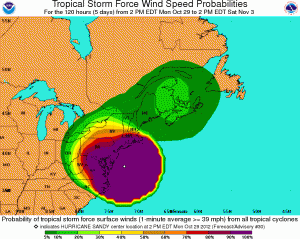 The Ninth Circuit Court of Appeals recently announced that it will move to “in-house publishing” of its opinions. According to the press release, “Court staff now manage the process of converting opinions from the original word processing documents into Adobe PDF files, which are then uploaded onto the website, where they can be viewed and/or downloaded by the public.” This task was previously managed by West Publishing, and bringing it in house is expected to save the court $350,000 in the first year.
The Ninth Circuit Court of Appeals recently announced that it will move to “in-house publishing” of its opinions. According to the press release, “Court staff now manage the process of converting opinions from the original word processing documents into Adobe PDF files, which are then uploaded onto the website, where they can be viewed and/or downloaded by the public.” This task was previously managed by West Publishing, and bringing it in house is expected to save the court $350,000 in the first year.
Hooray? Sort of. I’m glad the Ninth Circuit will be saving itself over a quarter of a million dollars, but that’s basically the only public benefit here. In fact, the headline on the press release is a bit misleading, because the court is not officially publishing their own opinions – West is still doing that. The documents they post are only slip opinions. They are official and can be cited only for a short time before they are published by the official publisher (The Federal Reporter, owned by Thompson West). In order to effect real savings and provide true open access for the public, the Ninth Circuit needs to take this further and actually publish their own opinions.
Right now, when the Ninth Circuit judges issue an opinion and release it on the Web, it is immediately available to read and cite as a slip. After that, however, they send the opinions to Westlaw, who copy-edits each opinion and adds a citation in order to resell it in this final “official” version (in the Federal Reporter). I talked with David Madden in the Public Information Office at the Court, and he confirmed that this process will not change; West’s Federal Reporter will continue to publish the official opinions.

 Cellco Partnership v. FCC
Cellco Partnership v. FCC This week in
This week in  Of course, FDSys is still very limited. It’s only pulling opinions from a few courts, and it doesn’t seem to be up to date. I searched for a case from October (Windsor v. United States), and could not find anything. The GPO announced last year that its
Of course, FDSys is still very limited. It’s only pulling opinions from a few courts, and it doesn’t seem to be up to date. I searched for a case from October (Windsor v. United States), and could not find anything. The GPO announced last year that its  Newton v. LePage
Newton v. LePage Check out the latest crop of featured cases from Justia’s Dockets.
Check out the latest crop of featured cases from Justia’s Dockets. I’m sure most of our readers are familiar with
I’m sure most of our readers are familiar with  Dawson Farms challenged the RMA’s denial of its crop-insurance claim alleging loss due to “tuber rot” in stored potatoes. A final agency review affirmed the RMA’s denial of Dawson Farms’ claim, finding that the insurance adjuster’s sampling of the stored potatoes followed adequate sample procedures. Dawson Farms appealed the final agency decision to the district court, which affirmed. The court believed that, in light of the nature of the hearing officer’s finding under review, the deputy director’s statements made it reasonably discernable that the deputy director applied the correct legal standard and considered the record for the proper purpose of reviewing the hearing officer’s decision for substantial evidence. The hearing officer based his conclusion largely on the testimony of an expert in potato pathology. The court also believed that, to the extent the deputy director’s determination was a rejection of the hearing officer’s finding that the adjuster had a duty to re-sample, the issue under review was a question of law. Consequently, the court found no abuse of discretion or arbitrary and capricious action by the deputy director. Further, the agency determination was supported by substantial evidence.
Dawson Farms challenged the RMA’s denial of its crop-insurance claim alleging loss due to “tuber rot” in stored potatoes. A final agency review affirmed the RMA’s denial of Dawson Farms’ claim, finding that the insurance adjuster’s sampling of the stored potatoes followed adequate sample procedures. Dawson Farms appealed the final agency decision to the district court, which affirmed. The court believed that, in light of the nature of the hearing officer’s finding under review, the deputy director’s statements made it reasonably discernable that the deputy director applied the correct legal standard and considered the record for the proper purpose of reviewing the hearing officer’s decision for substantial evidence. The hearing officer based his conclusion largely on the testimony of an expert in potato pathology. The court also believed that, to the extent the deputy director’s determination was a rejection of the hearing officer’s finding that the adjuster had a duty to re-sample, the issue under review was a question of law. Consequently, the court found no abuse of discretion or arbitrary and capricious action by the deputy director. Further, the agency determination was supported by substantial evidence. As
As